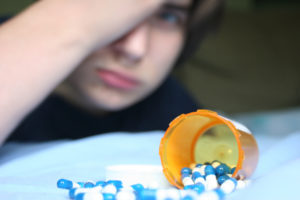Parents: It’s officially summertime, and we know what that means. Kids suddenly have a lot of free, unsupervised time on their hands, and you might already be worried about where they will be and what they’ll be up to.
According to Bradford Health Services, drug use among adolescents increases during summer months. While it’s impossible to keep an eye on your teen 24/7, there are several ways to be proactive:
- Have a conversation – Don’t assume they’ve already gotten the message. Take some time to sit down with them and discuss the impact drugs can have, as well as the dangers that come with them. Even if they’ve heard it all before, it can mean a lot coming from a sincere parent.

- Be involved – This doesn’t mean you have to take off the whole summer and accompany your teen everywhere. This just means keeping a line of communication open. Show genuine interest in their activities, friends and hobbies. Let them know they can come talk to you if there’s anything that’s bothering them. The more you talk with them, the more natural the line of communication will feel.
- Get them involved – Summer is a great time to try out new sports or explore a new hobby. Get them involved in camps, clubs or a sports team. In addition, many businesses hire students during the summer months. A job is a great way to instill a sense of responsibility and cut down on unsupervised time!
- Make them aware of media influence – Bottom line: The topic of drugs is prevalent in many of today’s popular music, movies, TV shows and video games. Make sure your teen understands the messages that are being shared, and remind them that there’s nothing glamorous about drug use.
For additional peace of mind, make sure you are taking precautionary measures with the prescription medicines you have in your home. According to the Tennessee Department of Mental Health and Substance Abuse Services, 55 percent of people using prescription drugs recreationally in Tennessee got them from a family member or friend.
This is why it’s important to keep prescription medicine out of the wrong hands. One easy step is to purchase a home lock box, which many local drug stores keep in stock. Make sure your lock box is kept in a safe and secure location. CLD also recommends counting your pills every two weeks to make sure nothing is going missing. You can also drop off your unused or expired medications at the permanent drop boxes located across the state.
Think your teen or someone you know might be struggling with addiction? CLD has compiled a list of resources at the national and local levels.
